
Hippocampal Circuit and Code for Cognition Lab
About
Established within the Brain Imaging Centre of the Research Centre for Natural Sciences of the Hungarian Research Network, in Budapest, Hungary, with initial funding from the National Research, Development, and Innovation Office, the Hippocampal Circuit and Code for Cognition Lab (HCCCL) – a Max Planck Partner Group of the MPI for Human Development in Berlin – strives to understand how the hippocampus and its networks support and implement human memory and cognition across the lifespan.
Research
Development of the hippocampus across the lifespan
Cutting-edge high-resolution magnetic resonance imaging (hr-MRI) of the living human hippocampus offers an unprecedented window on the development of this intricate brain structure. We exploit hr-MRI together with experimental methods to understand the relationship between changes in the hippocampus and in human cognition across the lifespan.
The hippocampus is the "new prefrontal cortex"
The hippocampus is not only responsible for laying down long-term memories.
Instead, this complex structure implements various mechanisms that participate in a multitude of cognitive processes.
What are these mechanisms and how do they contribute to cognition? Through our research, we aim to provide some answers to these questions.
Research highlights

Longitudinal Developmental Trajectories Do Not Follow Cross-Sectional Age Associations in Hippocampal Subfield and Memory Development
Keresztes, A., Raffington, L., Bender, A. R., Bögl, K., Heim, C., & Shing, Y. L. (2022).
In a study including 109 healthy children aged 6-10 years, we found that cross-sectional age-associations and longitudinal developmental trends in hippocampal subfield volumes were highly discrepant, both by subfields and in direction. For instance, as shown here in the picture on the left CA1-2 volumes showed positive volume-age associations but negative change across a two-year interval. This study underscores that children’s structural brain development and its relationship to cognition cannot be inferred from cross-sectional age comparisons.

Hair cortisol concentrations are associated with hippocampal subregional volumes in children
Keresztes, A., Raffington, L., Bender, A. R., Bögl, K., Heim, C., & Shing, Y. L. (2020).
The human hippocampus, crucial for memory across the lifespan, is highly sensitive to adverse life events. Stress exposures during childhood have been linked to altered hippocampal structure and memory performance in adulthood. So far, only few pediatric studies have examined glucocorticoid associations with hippocampal subfield volumes and their functional relevance. This article assessed whether volumes of hippocampal subregions were related to cumulative glucocorticoid levels (hair cortisol), parenting stress, and performance on memory tasks known to engage the hippocampus.
News
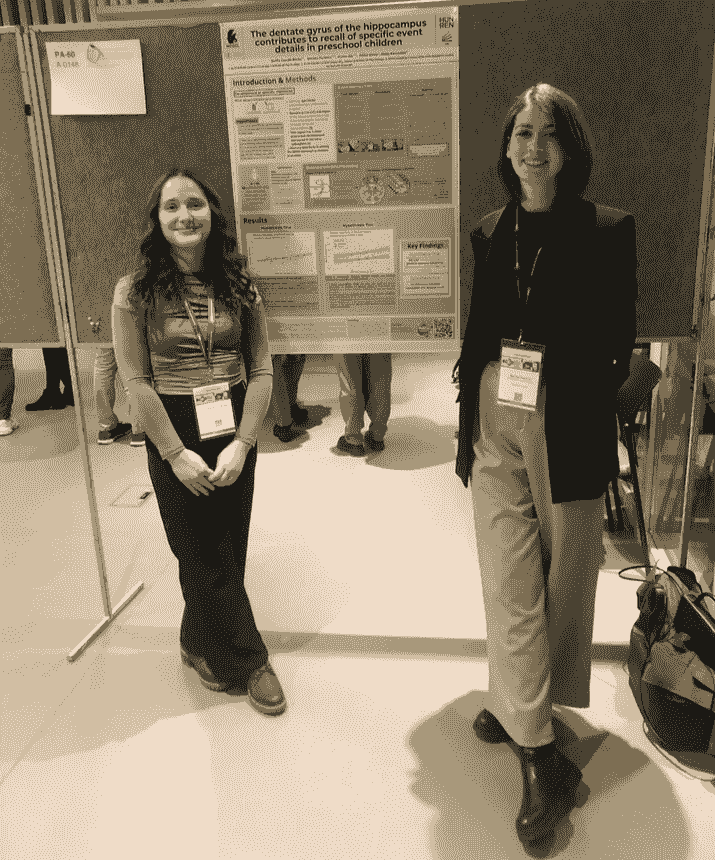
2026
January
Zsófi and Boró present initial findings from NeMO linking event memory precision to dentate gyrus volume in 4-year-olds at the Budapest CEU Conference on Cognitive Development (BCCCD 2026).
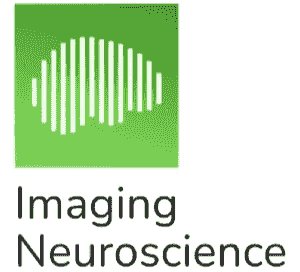
2025
December
New article in Imaging Neuroscience by Zsuzsa showing distinct but partly overlapping brain networks supporting memory discrimination for locations and objects. Congrats for a neat, rigorous, and immense work! All anonymous data and codes publicly available!
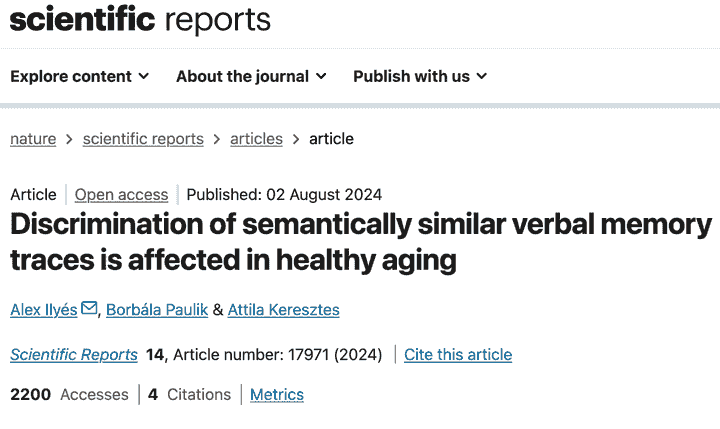
2024
August
Alex published his first study of his PhD! Using a newly developed experimental paradigm, he showed that healthy aging affects subtle memory manipulations of otherwise well preserved world knowledge.

2024
May
Zsuzsa and Attila had the greatest of luck to be able to chair a fantastic Dubrovnik Conference on Cognitive Science (the 15th) with super-inspiring speakers and amazing attendees presenting and discussing amazing science.

2024
February
New grant! Attila and Alex secured a grant from the National Research, Development and Innovation Office for a 4-year project entitled: 'Traveling Through Time and (Concept) Space: Hippocampal Contributions to Knowledge Representation in Children'. More on this coming soon...

2023
March
Our lab participated in the Little Scientists Afternoon organized by the CEU Babylab.
Visitors were introduced to magnetic resonance imaging (MRI) techniques and experimental tasks we use to better understand how brain development
supports memory development.
2023
March
Zsuzsanna Nemecz, PhD student and head researcher of TérKépÉsz, and Alex Ilyés, PhD student and head researcher of Tezaurusz had both of their abstracts accepted for the Cognitive Neuroscience Society's 30th conference. They were joined in San Fransico by the head of our lab, Attila Keresztes.

2022
August
Alex presented his poster at ESCOP 2022, entitled "Age-related differences in mnemonic discrimination of semantically similar adjective-noun phrases". This was our lab's first preregistered project on OSF. Check out the full poster here!

2022
July
Attila received the Bolyai János Research Scholarship awarded by the Hungarian Academy of Sciences to encourage and recognize the work of outstanding young researchers. It is one of the most prestigious awards for scientific work.

2022
June
Our lab’s work was featured in Attila’s talk at the Hippocampal Subfields Group's 2022 Webinar Series. The talk is now available here.

2022
February
New paper just out in Developmental Cognitive Neuroscience: "Longitudinal Developmental Trajectories Do Not Follow Cross-Sectional Age Associations in Hippocampal Subfield and Memory Development". It's open access here.

2021
November
We are joining forces with the ELTE Babylab to start a 3-year longitudinal investigation of memory development in 4–6-year-olds – the Neural Underpinnings of Memory Ontogeny (NeMO; link to study website [in Hungarian]) study is set to start in 2022 in collaboration with the Max Planck Institute for Human Development.

2021
September
Our lab participated in the European Researchers' Night. Check out our dedicated content (Hungarian only) here.

2021
August
Our student research assistant, Hunor won a 4-year PhD scholarship from Eötvös Loránd University. He will pursue his PhD in our lab studying the relation between pattern completion and pattern separation in early childhood.

2021
June
New preprint just out! Check it in the 'Research highlights section', or click here for the full read!

2021
March
Zsuzsa will present her poster at CNS 2021 virtual (March 13–16) on March 14, entitled "A Strong Test of Content-Specific Pattern Separation via Distinct Medial Temporal Pathways".

2021
February
HCCCL kicked off as an official Max Planck Partner Group this February with 3 new members joining the lab.

2020
July
Our student research assistant, Alex won a 4-year PhD scholarship from Eötvös Loránd University. He will pursue his PhD in our lab studying hippocampal computations supporting knowledge acquisition across the lifespan.

2020
June
HCCCL is partnering with the Center for Lifespan Psychology of the Max Planck Institute of Human Development in Berlin, Germany, becoming a Max Planck Partner Group between 2021-2025.

2019
September
HCCCL has its first PhD student: Zsuzsanna Nemecz. Tianyao Zhu has also joined HCCCL as a student volunteer. Welcome!

2019
January
Our research was featured at the BCCCD conference hosted by the CEU in Budapest. Great conference for developmental psychologists!

2018
December
HCCCL kicks-off at the Brain Imaging Centre of the Research Centre for Natural Sciences in the beautiful city of Budapest, Hungary.
The HCCCL team
We are recruiting!

Attila Keresztes, PhD
Principal Investigator
Attila recently wrapped up his postdoctoral years at the Centre for Lifespan Psychology (led by Prof. Ulman Lindenberger) of the Max Planck Institute for Human Development in Berlin, Germany. There he worked in the Cognitive and Neural Dynamics of Memory Across the Lifespan group led by Dr. Markus Werkle-Bergner, Dr. Yee Lee Shing, and Dr. Myriam Sander. Prior to his post-doc, Attila had been first trained as an experimental psychologist at Eötvös Loránd University in Budapest, Hungary, and then received his PhD in psychology and cognitive neuroscience from the Department of Cognitive Science at Budapest University of Technology and Economics, Hungary in 2014.

Zsuzsanna Nemecz
PhD Student
Zsuzsanna is a PhD candidate at the Eötvös Loránd University, Budapest (ELTE). She is working on lifespan development of memory functions and changes of hippocampal networks in aging. Zsuzsanna completed her undergraduate studies in psychology at ELTE, and obtained her Master’s Degree in cognitive neuroscience at the Berlin School of Mind and Brain. Her main interests are hippocampal computations, cognition in young and old age, and increasing the ecological validity of stimuli in cognitive science. She is currently teaching an Experimental Research Methods seminar for undergraduate psychology students.

Alex Ilyés
PhD Student
Alex is a PhD at Eötvös Loránd University (ELTE), Budapest. He is working with HCCCL on a study of lifespan development of memory functions. In his PhD thesis, he will investigate the contribution of pattern separation to semantic memory processes. Alex completed his Bachelor’s and Master’s studies at ELTE, where he worked under the supervision of Bálint Forgács, PhD. They developed a stimuli set and completed an EEG study examining processes underlying figurative language comprehension and the understanding of novel metaphors. Alex is broadly interested in language, memory and the neural processes underlying cognitive abilities.
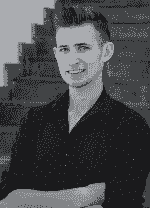
Hunor Kis
PhD Student
Hunor started his PhD at Eötvös Loránd University (ELTE), Budapest in 2021. His project with HCCCL aims to understand how pattern completion and pattern separation development shapes memory in early childhood. Hunor completed his Bachelor’s and Master's studies at ELTE, where he had studied the interplay between categorization and semantic memory. Hunor is keen on enriching our understanding of human memory by integrating novel neurocognitive models and traditional psychological concepts of memory.
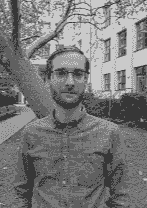
Endre Csikós
PhD Student
Endre started his PhD in 2025 at Eötvös Loránd University (ELTE), where he obtained his Master’s in psychology. He aims to shed some light on what role does the hypothalamus – and especially the hypothalamic neuropeptides – play in the structural and functional changes of the hippocampus during healthy ageing. Endre is also passionate about the Open Science movement and the methodological questions of raising scientific credibility. He primarily works on the organization and data analysis of the TérKépÉsz study. He is mainly interested in the connections between the changes of brain white matter and memory functions

Borbála Brosig
PhD Student
Bori started her PhD at Semmelweis University in 2025. She is working on the MRnGO project, and her PhD research focuses on the consolidation process of different modalities of memory traces at both neural and behavioral levels.

Boróka Ferencz
PhD Student
Boró started her PhD at Eötvös Loránd University (ELTE) in 2025. She completed her Master’s degree at ELTE and her bachelor’s degree at Babeș-Bolyai University. She is broadly interested in how memory develops during childhood and has been contributing to the longitudinal NeMO study. Her doctoral research focuses on memory errors and examines how social influences and neural development shape what children remember and misremember. By combining behavioral tasks with structural MRI, she aims to reveal how interactions with parents and the brain development contribute to memory formation.

Ambrus Farkas
Research Assistant
Ambrus has obtained Master’s in psychology at the Budapest University of Technology and Economics (BME), with a specialization in cognitive-, experimental-, and neuropsychology. He obtained his undergraduate degree at Eötvös Loránd University (ELTE). He is particularly interested in brain imaging techniques, the functioning of the brain and nervous system, the methodology and process of experimentation, as well as gaining experience in the application of neuropsychological tools. His goal is to become a neuropsychologist and continue his research endeavors.
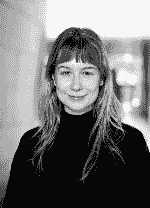
Petra Kóródi
Research Assistant
Petra recently completed her Master’s in psychology at Eötvös Loránd University (ELTE) and currently works as a research assistant in a project investigating how memory develops in early childhood through pattern separation and completion development. Her main interests lie in cognitive development and brain imaging. As a first-year PhD student, she extends this focus to musical and linguistic development.

Anna Horgonyi
Research Assistant
Anna recently completed her Master’s in psychology at Eötvös Loránd University and currently works as a research assistant in the NeMO study.
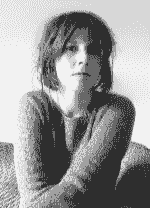
Anna Bródy
Student Research Assistant
Anna is a second-year Master's student at the Computational and Cognitive Neuroscience programme of the Budapest University of Technology and Economics. With a background in linguistics, she maintains a keen interest in the neural correlates of language, and is eager to gain hands-on experience in experimental methods and the practicalities of the research process.
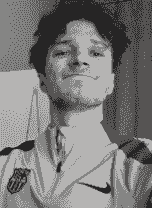
Domonkos Schveger
Student Research Assistant
Domi is a third year Psychology student at Eötvös Loránd University’s Bachelor’s program. He is fascinated neuroimaging techniques, and is mainly interested in associations between memory, implicit learning and creativity.

Rebecca McFegan
Student Research Assistant
Rebecca is a Cognitive Psychology student at Eötvös Loránd University (ELTE)'s Master’s program, where she also completed her undergraduate studies. Her research interests include memory, learning, and their neural foundations. She is also curious about how these functions are altered in neurological conditions. More broadly, she is interested in the integration of psychology and neuroscience as a way of understanding how complex mental functions emerge from underlying brain mechanisms.

Domonkos Racsmány
Student Research Assistant
Domonkos is a third-year undergraduate at Pázmány Péter Catholic University, who has found home in cognitive psychology. He is particularly fascinated by theories integrating brain functions and structures. Currently he is getting familiar with research methodologies and imaging techniques necessary to investigate structure-function associations.
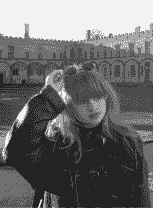
Anna Illés
Student Research Assistant
Panni is a first year master’s student at the university of Eötvös Loránd University, specializing in Clinical and Health Psychology. She joined the lab in January 2024 and has been part of the MRnGO project as a research assistant. She has developed an interest in cognitive psychology, particularly mental representations and its linguistic constraints, as well as the use of brain imaging techniques in psychology. She is excited to continue her contribution to the project and learn more about research methodologies used in cognitive science. Her goal is to pursue a dual career path in neuropsychological therapy and research.
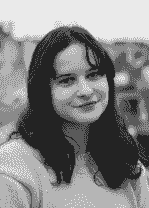
Mónika Egyed
Student volunteer
Móni is a third-year psychology undergraduate at Eötvös Loránd University (ELTE). From an early age, she has been deeply curious about the hidden mechanisms underlying human behavior. She plans to continue her studies at the master’s level in cognitive psychology, where her interests focus on brain function, memory, and behavior. She is particularly excited by research on children’s behavior and memory development.
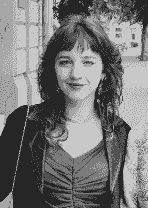
Szonja Szabó
Student volunteer
Szonja is a third-year psychology undergraduate at Eötvös Loránd University (ELTE). Her primary interests lie in the study of memory, learning, and language, and she is particularly fascinated by modern brain imaging methods. She is eager to deepen her understanding of the complex mechanisms of memory and plans to continue her academic path in cognitive psychology, with a focus on memory research.
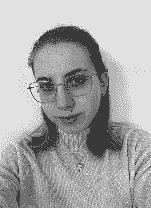
Száva Nyilas
Student volunteer
Száva is a second-year psychology undergraduate at Eötvös Loránd University (ELTE). Her research interests focus on the impact of digital technologies on memory and brain function, particularly in the context of children’s cognitive development. She is fascinated by how modern technology influences learning and memory systems and is also interested in magnetic resonance imaging and other neuroimaging approaches to studying brain function.

This may be your position
Contact us!
Connect with us if you're interested in working with us as a student research assistant, intern, or if you would like to do a PhD with us!
Alumni

Anna Kispál
Student Research Assistant
Anna is currently doing a PhD at the Central European University, now in Vienna.

Tianyao Zhu
Student Volunteer
After completing her PhD at the University of Queensa, Tianyao is now postdoctoral guest researcher at Max Planck Institute for Biological Cybernetics.


Ágota Vass
Student Research Assistant
Ágota is currently pursuing her PhD at Semmelweis University, Budapest.

Lilla Barbarics
Student Research Assistant
Lilla has completed her BSc studies at Budapest University of Technology and Economics (BME) as a biochemical engineer

Virág Anna Varga
Student Research Assistant
Virág has completed her MA in Cognitive Psychology at Eötvös Loránd University (ELTE), Budapest, and is studying at the University of Theater and Film Arts (SZFE).

Dóra Bodócs
Student Research Assistant
Dóra is currently studying in the Psychology Bachelor’s program of Eötvös Loránd University (ELTE), Budapest. She is the recipient of the ERASMUS grant, and is currently studying in the Netherlands.

Patrícia Dávid
Student Research Assistant
Patrícia completed her MA in Cognitive Psychology at Eötvös Loránd University (ELTE), Budapest in 2021.

Borbála Paulik
Volunteer
Borbála finished her undergraduate studies at the University of Szeged (SZTE) and her Master’s in psychology at Eötvös Loránd University (ELTE), Budapest in 2021.

Zoé Börtsök
Student Volunteer
Zoé is completed her education in the Psychology Bachelor’s Program at Eötvös Loránd University, Budapest.

Gergő Tósaki
Student Volunteer
Gergő is in his third year of his Bachelor's Degree at Eötvös Loránd University, Budapest.

Menta Havadi-Nagy
PhD Candidate
Menta joined our lab while she was continuing her education at Eötvös Loránd University, Budapest as a PhD candidate.

Sára Munkácsi
Student Volunteer
Sára is a third year psychology student at Pázmány Péter Catholic University, Budapest, completing her Bachelor's degree.

Lili Kerekes
Student Research Assistant
For almost three years, Lili was the heart of TerKepEsz [MindMap], a longitudinal study investigating changes in brain networks supporting distinct forms of memory discrimination in healthy aging.
Publications
Key publications
Full publication list on google scholar
2022
Keresztes, A., Raffington, L., Bender, A. R., Bögl, K., Heim, C., & Shing, Y. L. (2022). Longitudinal developmental trajectories do not follow cross-sectional age associations in hippocampal subfield and memory development. Developmental Cognitive Neuroscience, 54, 101085. https://doi.org/10.1016/j.dcn.2022.101085
2020
Keresztes, A., Raffington, L., Bender, A. R., Bögl, K., Heim, C., & Shing, Y. L. (2020). Hair cortisol concentrations are associated with hippocampal subregional volumes in children. Scientific Reports, 10(1), 1-12. doi: 10.1038/s41598-020-61131-x
2018
Keresztes, A., Ngo, C. T., Lindenberger, U., Werkle-Bergner, M., & Newcombe, N. S. (2018). Hippocampal Maturation Drives Memory from Generalization to Specificity. Trends in Cognitive Sciences, 22 (8), 676-686. doi: 10.1016/j.tics.2018.05.004
Bender, A. R., Keresztes, A., Bodammer, N. C., Shing, Y. L., Werkle‐Bergner, M., Daugherty, A. M., ... & Raz, N. (2018). Optimization and validation of automated hippocampal subfield segmentation across the lifespan. Human Brain Mapping, 39 (2), 916-931. doi: 10.1002/hbm.23891
2017
Keresztes, A., Bender, A. R., Bodammer, N. C., Lindenberger, U., Shing, Y. L., & Werkle-Bergner, M. (2017). Hippocampal maturity promotes memory distinctiveness in childhood and adolescence. Proceedings of the National Academy of Sciences, 114 (34), 9212-9217. doi: 10.1073/pnas.1710654114
2014
Keresztes, A., Kaiser, D., Kovács, G., & Racsmány, M. (2013). Testing promotes long-term learning via stabilizing activation patterns in a large network of brain areas. Cerebral Cortex, 24 (11), 3025-3035. doi: 10.1093/cercor/bht158
2013
Keresztes, A., & Racsmány, M. (2013). Interference resolution in retrieval-induced forgetting: Behavioral evidence for a nonmonotonic relationship between interference and forgetting. Memory & Cognition, 41 (4), 511-518. doi: 10.3758/s13421-012-0276-3
Résztvevőknek
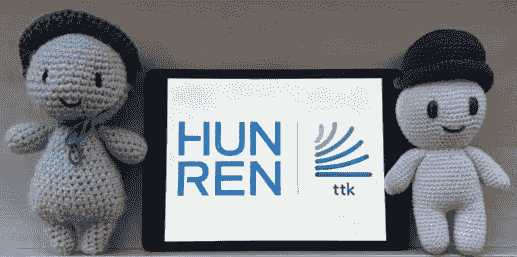
A Merengő kutatás
Szülőknek és tanároknak
Szokott gondolkodni azon, hogy gyermeke vajon hogyan láthatja a világot? Hogyha van 6-8 éves gyermeke és szeretne többet megtudni arról, hogy hogyan gondolkodik környezetéről, regisztráljon a Merengő web-applikációban (https://merengo.vercel.app), és segítsen kutatásunkban!
Ön esetleg 1-2. Osztályos gyermekek tanításával foglalkozik? Kutatásunkat Budapesten és környékén a HUN-REN Természettudományi Kutatóközpont tapasztalt kutatói és kutatási asszisztensei több általános iskolába is elviszik 2025/2026-os tanévben. Amennyiben szeretne segíteni nekünk, hogy az Ön osztályából is kereshessünk résztvevőket, keressen minket a merengo@ttk.hu email címen, vagy a +36 1 3826 903 telefonszámon.
Kutatásunk célja annak feltérképezése, hogy 6-8 éves gyermekek gondolkodásuk során milyen jellemzőket kapcsolnak egyes fogalmakhoz. Gyermeke egy játékos feladat során segíthet Mimónak – egy kitalált lénynek – megismerni a világunk fogalmait. Mimó tíz fogalomról fogja megkérdezni gyermekét (a „kutyától” a „játszótérig”), mi pedig a kapott válaszokból egy „fogalmi normát” készítünk, azaz egy olyan adatbázist, ami tartalmazni fogja a 6-8 éves gyerekek által fontosnak gondolt jellemzőket 300 előre kiválasztott fogalomról. Ilyen fogalmi normát gyermekek körében Magyarországon elsőként a mi kutatócsoportunk hoz létre abban a reményben, hogy hasznos eszköz lehet további nyelvi, pszichológiai és pedagógia kutatásokban és fejlesztésekben is.
A TérKépÉsz kutatás
A toborzás lezárult.
Ön 65-73 éves? Szeretné elsőkézből megtapasztalni, hogy milyen egy tudományos kutatás? Jelentkezzen a TérKépÉsz kutatásba!
A kutatásunkban azt próbáljuk meg felderíteni, hogy az egészséges idősödés során milyen változások mennek végbe figyelmünk, gondolkodásunk, vagy akár az emlékezetünk működésében.
A kutatás céljának megvalósítása érdekében számítógépen végzett, illetve papír-ceruza alapú tesztek és kérdőívek mellett mágneses rezonancia képalkotó (MRI) vizsgálatot is végzünk a résztvevőkön. Az érdeklődők két 120 perces ülésen vesznek részt, az egyiken MRI vizsgálatot végzünk, míg a másikon kizárólag számítógépes és papír-ceruza alapú feladatok szerepelnek. Ugyanezt a két ülést 2 év múlva megismételjük. A részvételt mindkét alkalommal 3000 forint értékű TESCO utalvánnyal honoráljuk.
A kutatást a Természettudományi Kutatóközpontjának tapasztalt kutatói végzik, akik garantálják a résztvevők biztonságát és kényelmét. Amennyiben felkeltettük az Ön érdeklődését, keressen minket a +36 1 3826 45 telefonszámon vagy a terkep@ttk.hu email címen.
Az MRI vizsgálatok menetéről itt tudhat meg több információt.

Our host, the Research Centre for Natural Sciences is part of the Eötvös Loránd Research Network
Copyright © 2018























































